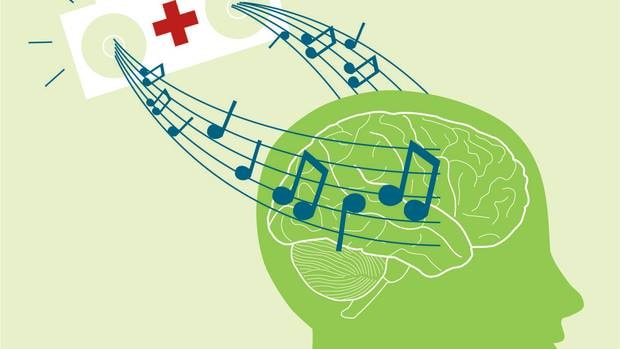Listening to music helps patients have more strength to overcome illness.
Music is one of the spiritual foods in life. It not only helps people feel relaxed and happy but also brings more balance to their psychology…
Based on that, scientists have brought music into medicine to treat a number of diseases, especially those related to mental factors.
When is music used in therapy?Even for people who are physically and mentally healthy, music still brings them comfort and reduces stress in life. When swaying to music, it can help the body completely relax. Moreover, music also stimulates physical activities, bringing a feeling of excitement. This explains why when enjoying music, many people tend to work more persistently and enthusiastically.

Since the 1940s, music therapists in the United States have used music to improve patients' communication skills and reduce their pain. A 2007 survey of 1,900 U.S. health care facilities found that 35% offered some form of music therapy, and the trend is growing.
Patients who participate in music therapy rehabilitation programs show more positive emotional and social communication than those who receive only conventional treatment. Based on this, some researchers have begun to propose the use of music in the treatment of people with myocardial infarction.
Uses of music therapyThe effects of music therapy on physiological changes are as evident as its impact on mood. A study by Dr. Claudius Conrad of Harvard Medical School, Massachusetts General Hospital, attributed the healing and soothing effects of music to the stimulation and suppression of three stress-reducing hormones.
 |
| Music therapy is not just about listening to music, but also about playing music. |
The use of music in therapy has always brought positive results for adults, adolescents and children. This therapy helps patients express their emotions, control and reduce stress, improve mental health, increase the body's ability to recover after treatment as well as actively support the communication process.
Music therapy can be applied to people with mental disabilities, learning disabilities, etc. to help them overcome obstacles in learning new things, contributing to supporting patients with memory loss, especially in the elderly, as well as other diseases related to memory, people facing chronic or acute physical pain, people with brain damage, people with muscle tension, alcoholics, etc.
In the case of women in labor, music therapy also helps reduce pain during labor. During treatment, music also has the effect of encouraging patients to move more as well as helping them reduce stress and relax.
Currently, some advanced hospitals in the world also apply music therapy to help patients improve their mood and fight physical weakness. In some schools for children with physical or mental disabilities, music also plays an active role in helping them recover certain functions, improve communication skills and increase physical activities.
 |
| Listening to music helps patients have more strength to overcome illness. |
Moreover, music also has a positive impact on intelligence, especially in children. Children's brains tend to develop from daily life experiences and brain absorption.
The five senses of the child can stimulate the brain's transition cells (also called synapses) and create millions of these cells. The more they appear, the smarter the child will become. One of the auditory effects of listening to music is also the child's ability to concentrate on learning.
Music also helps reduce mental stress that can potentially damage a child’s brain. Teaching a child to play a musical instrument will also improve their thinking speed and their concept of space and time, especially in mathematics.
Other studies conducted since the early 1990s in many major hospitals around the world have also concluded that music actually reduces heart rate, regulates blood pressure and breathing rate of patients who have just undergone surgery.
In addition, music therapy also increases motor skills in patients recovering from stroke, strengthens the immune system, improves concentration, helps regulate pain, creates a sense of well-being and reduces anxiety for patients waiting for surgery...
Principles of using music in disease treatmentThis is a special therapy that combines the use of music to bring balance and help people overcome mental, physical, social and cognitive instability. The treatment principles need to be carried out under the guidance of therapists specializing in this field.
 |
| Playing music is also a part of music therapy. |
First, the therapist will create a comprehensive chart of the patient's psychological and physical condition to clearly understand the patient's activities in society, cognitive skills and the patient's ability to communicate with the community...
Then, the decision will be made on which music theory to choose as well as the treatment time for each patient. The choice of music during the treatment period should depend on the preferences of each patient, their medical condition and their treatment goals.
Treatment may include a variety of music therapies. Among them, the patient may listen to music, compose music, perform songs, discuss lyrics, and ultimately learn to appreciate music.








